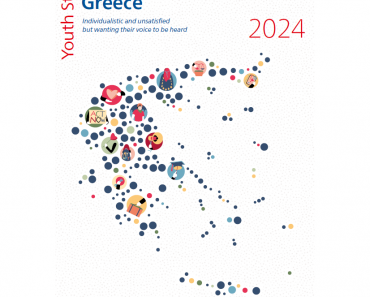Polls are an inseparable part of our lives. We want to know what others think. We believe that knowing public opinion offers guidance and helps us form our own views. Especially in the run-up to political elections, pollsters’ findings turn into strategic weapons. This commentary focuses on a very special kind of poll – one unlike any conducted before, and thus deserving of particular attention. Titled “Greece through German Eyes: Beyond Stereotypes in German-Greek Relations” and published by the Friedrich-Ebert-Foundation in Athens, this is the first-ever survey of Germany’s image of Greece. The data were presented to the public in Athens this week and have sparked significant media coverage.
The study, conducted nationwide in Germany for the first time and examining Germans’ perceptions of Greece and Greeks, has aroused considerable curiosity among everyone interested in bilateral relations. This curiosity is well justified: until now, we had no clear idea of how Germany views Greece. By contrast, Greece’s image of Germany is well researched. That asymmetry has now come to an end. The new study sheds light on this previously unexplored corner of public opinion research.
First things first: a clear majority of Germans – exactly 66 percent – hold a good or very good opinion of Greece. When the average German thinks of Greece, they slip into a daydream: vacation, sunshine, beautiful weather. On the list of spontaneous associations, Greek specialties follow: nearly every child in Germany knows souvlaki, feta, and tzatziki. The renowned hospitality of the Greek people is another hallmark, as are the ancient monuments and picturesque islands. The image of Greece in Germans’ minds resembles the glossy brochures of the national tourism organization EOT and the travel companies for whom Greece is a lucrative destination.
In this idyllic mental landscape, negative associations barely register. Just one in ten Germans today links Greece with terms like crisis, poverty, or bankruptcy. In the German consciousness, Metaxa, ouzo, and retsina outweigh the upheavals of the euro crisis a decade ago.
But life is not all about vacations, sunshine, and pristine beaches. Although relations between Greece and Germany have clearly improved in recent years, dark shadows still hang over the supposedly harmonious picture – particularly when one compares attitudes in both countries regarding key questions of their shared history.
A second, revealing finding of the survey is this: Germans feel warmer toward Greece than Greeks do toward Germany. The reason lies in history: significant events in their shared past are evaluated and weighed differently. Above all, the period of Nazi occupation and the resulting question of reparations, followed by the euro crisis that pushed Greece to the brink, and Germany’s response at the time have left deep scars in many Greeks’ collective memory. Another crucial issue shaping Greek foreign policy is the sense, often felt in Greece, that Germany failed to show solidarity in the face of Turkish threats.
There is indeed some understanding in Germany for Greek positions. Yet a sobering takeaway for Greeks is this: a large majority of Germans appear unwilling to let unpleasant political questions cloud their positive holiday image of Greece. Remarkably, the survey reveals close alignment between the German government’s stance on issues relating to Greece and the majority view among the public. This includes, for example, the question of reparations, where only a minority supports payments, and the stance on Greek-Turkish tensions, where nearly half of Germans favor a neutral German position. A slight consolation: at least a third of Germans advocate for supporting Greece, while just 14 percent lean more toward siding with Turkey.
One chapter of the study is dedicated to the approximately 500,000 Greeks living in Germany, who have found a second home there. The vast majority of Germans hold a positive view of them. Greeks in Germany are considered so well integrated that they are often described as an “invisible minority.” This is only partially good news, as the Greek community in Germany has little political visibility or influence in Berlin. The diaspora is not a relevant political force. A majority of Germans, however, would like to see greater engagement by Greeks in Germany – another fascinating insight from the survey. It is now up to Germany’s Greeks to finally activate this lever and thereby set a new tone in bilateral relations.







